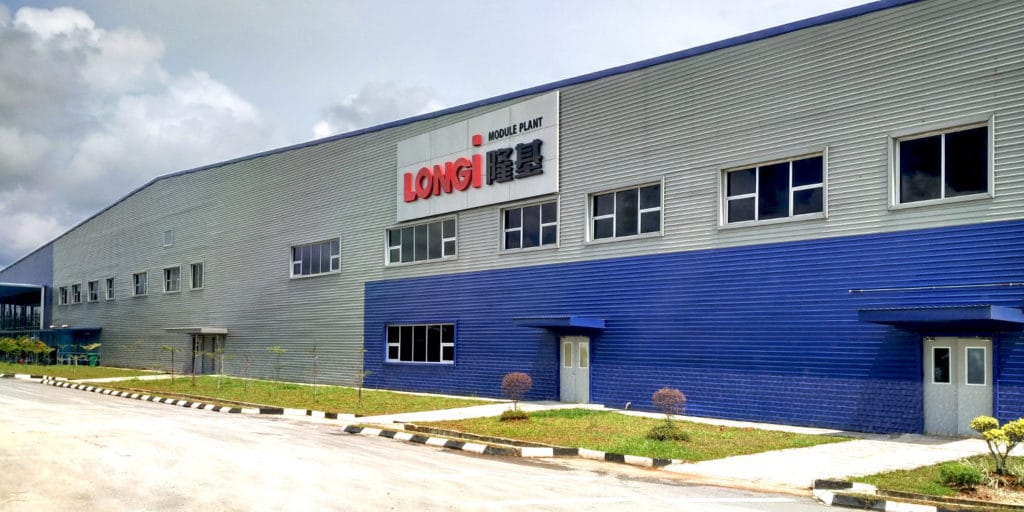Within hours of module manufacturer Jinko Solar responding to patent infringement claims by Korean rival Hanwha Q Cells, fellow Chinese manufacturer Longi Solar followed suit.
Hanwha on Tuesday said it had filed lawsuits with the U.S. International Trade Commission (US ITC) and the U.S. District Court in Delaware claiming Longi, Jinko and Norwegian module manufacturer REC infringed its U.S. Patent No. 9,893,215, by using Hanwha’s passivation technology to increase the efficiency and performance of their solar cells.
In its statement, Longi said it had not received official notification of the lawsuits nor any business negotiation correspondence from Hanwha Q Cells. Longi, which pv magazine contacted for comment on the issue on Tuesday, said it had conducted preliminary analysis on what was reported by media on the matter, and provided details related to the patent dispute.
Patent claim
“The patent family used by Hanwha Q Cells in the complaint is acquired through multiple transfers and transactions from other research institutes; [which] act as a co-owner to the patents,” Longi said. “Currently, several opposition procedures against the patents have been filed, at least in Europe, and there is considerable uncertainty with regards to the validity of the patent rights.”
Longi claimed the passivation technology it uses for cell production is not the same as indicated by Hanwha in its allegations. “From a technical perspective, the current technology used in Longi’s products is not the same as the technology contained in the disputed patents: the disputed patents are about ALD [atomic layer deposition] technology while Longi uses PECVD (plasma-enhanced chemical vapor deposition) technology,” the statement said.
The Chinese manufacturer said it will “actively respond” to Hanwha’s complaints, which it says will have no impact on its operations. The Xi’an-based company added, it owns more than 1,000 patents and patent applications.
Longi was not named in a separate patent infringement lawsuit filed by Hanwha Q Cells in Germany. pv magazine has also contacted REC about the Hanwha allegations but has yet to receive a response.
This content is protected by copyright and may not be reused. If you want to cooperate with us and would like to reuse some of our content, please contact: editors@pv-magazine.com.




By submitting this form you agree to pv magazine using your data for the purposes of publishing your comment.
Your personal data will only be disclosed or otherwise transmitted to third parties for the purposes of spam filtering or if this is necessary for technical maintenance of the website. Any other transfer to third parties will not take place unless this is justified on the basis of applicable data protection regulations or if pv magazine is legally obliged to do so.
You may revoke this consent at any time with effect for the future, in which case your personal data will be deleted immediately. Otherwise, your data will be deleted if pv magazine has processed your request or the purpose of data storage is fulfilled.
Further information on data privacy can be found in our Data Protection Policy.